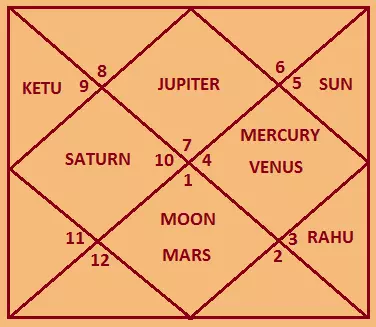Paksha or Fortnight in Astrology or Jyotish

Best Astrologer in India: - Dr.A.S.Kalra


Paksha or Fortnight in Indian Hindu Calendar
In the Indian Hindu calendar system, a Paksha refers to a fortnight or a half-month lunar phase. Each lunar month is divided into two Pakshas, depending on the waxing and waning phases of the Moon. This division plays a crucial role in Indian astrology, determining auspicious timings, religious rituals, and festivals.
Types of Pakshas
There are two main Pakshas in each lunar month:
- Shukla Paksha (शुक्ल पक्ष): This is the bright fortnight, starting from the Amavasya (New Moon) and ending with the Purnima (Full Moon). It symbolizes growth, positivity, and is generally considered auspicious.
- Krishna Paksha (कृष्ण पक्ष): This is the dark fortnight, beginning from the Purnima (Full Moon) and ending with the Amavasya (New Moon). It represents decline or withdrawal and is usually considered more suitable for spiritual practices and penance.
Paksha and Tithis
Each Paksha consists of 15 lunar days called Tithis. These are:
- Pratipada (1st)
- Dvitiya (2nd)
- Tritiya (3rd)
- Chaturthi (4th)
- Panchami (5th)
- Sashti (6th)
- Saptami (7th)
- Ashtami (8th)
- Navami (9th)
- Dashami (10th)
- Ekadashi (11th)
- Dwadashi (12th)
- Trayodashi (13th)
- Chaturdashi (14th)
- Purnima / Amavasya (15th)
Astrological and Religious Significance
In Vedic Astrology, Paksha plays a significant role in analyzing horoscopes and calculating Muhurtas (auspicious timings). Many Hindu festivals and fasts are observed on specific Tithis within either Shukla or Krishna Paksha.
For example:
- Guru Purnima is celebrated on the full moon of Shukla Paksha in Ashadha month.
- Mahashivratri is observed on Chaturdashi of Krishna Paksha in Phalguna month.
Paksha in Horoscope Interpretation
Some astrologers consider the Paksha in which a person is born to determine their nature and temperament. Births in Shukla Paksha are often associated with brighter or extroverted personalities, while Krishna Paksha births may denote introspective and spiritual tendencies.
Conclusion
The concept of Paksha provides a lunar rhythm to the Hindu calendar and astrological calculations. Understanding Pakshas is essential for accurate Panchang analysis and for aligning life events with cosmic cycles in Indian Vedic tradition.
